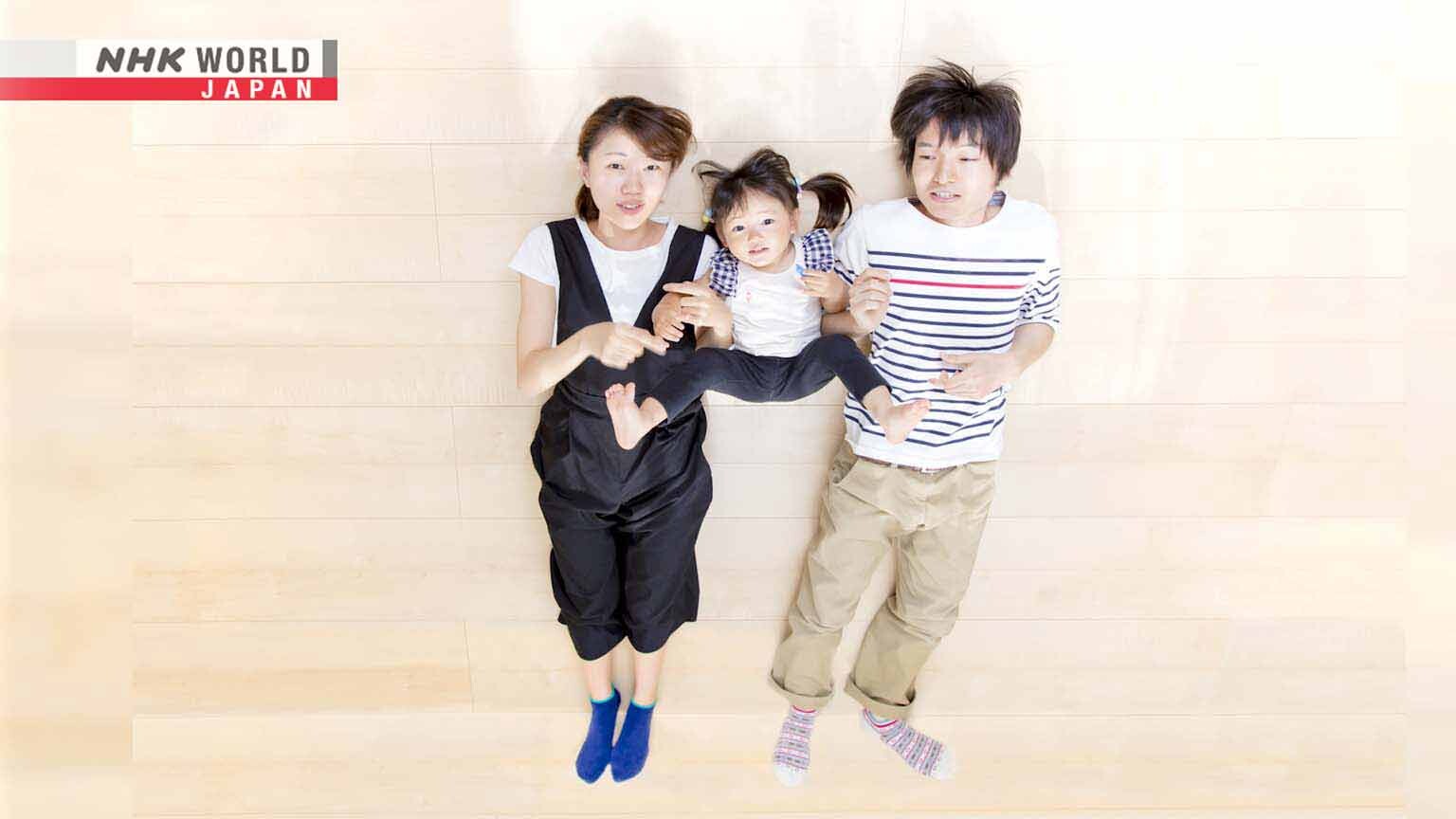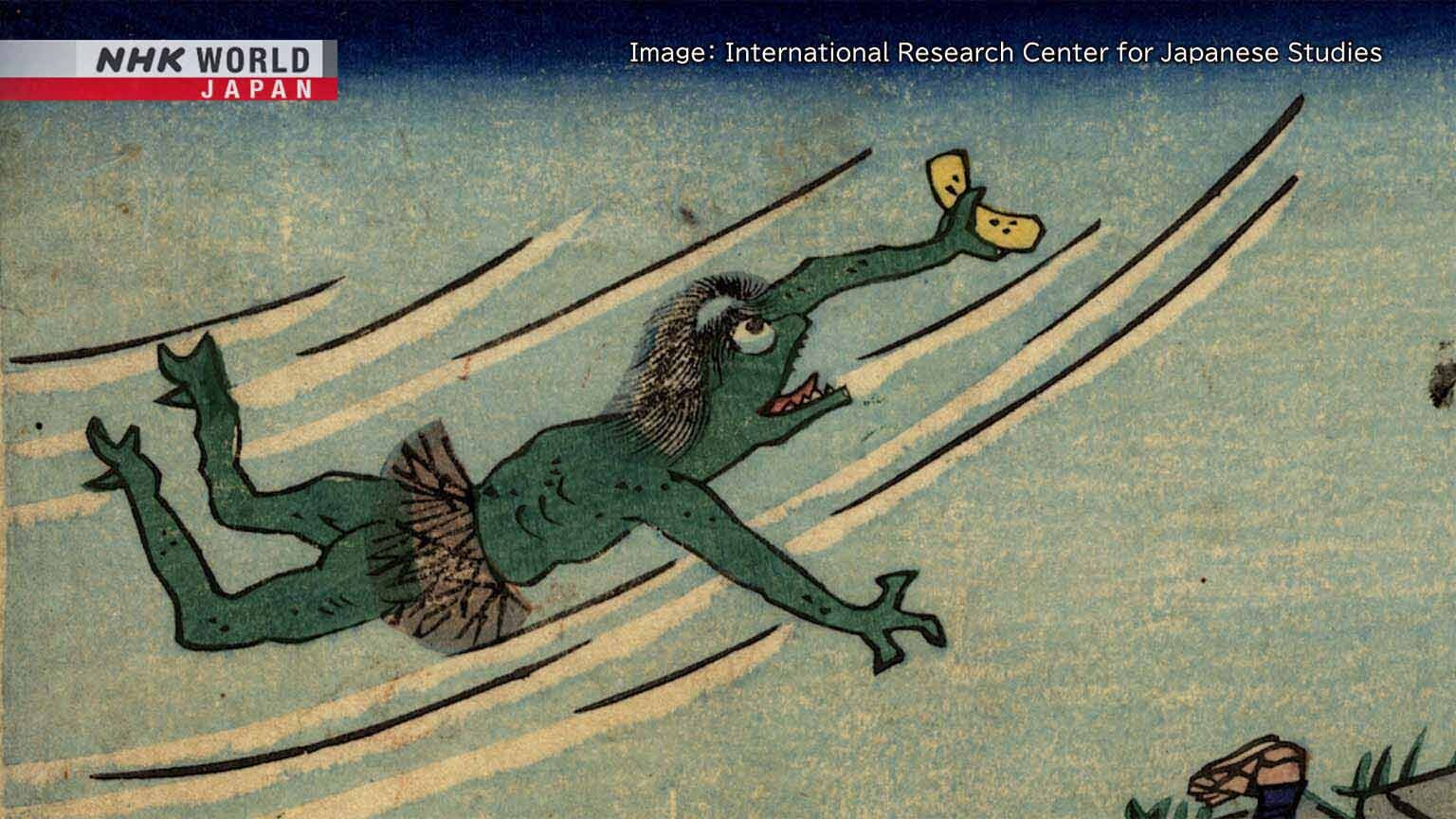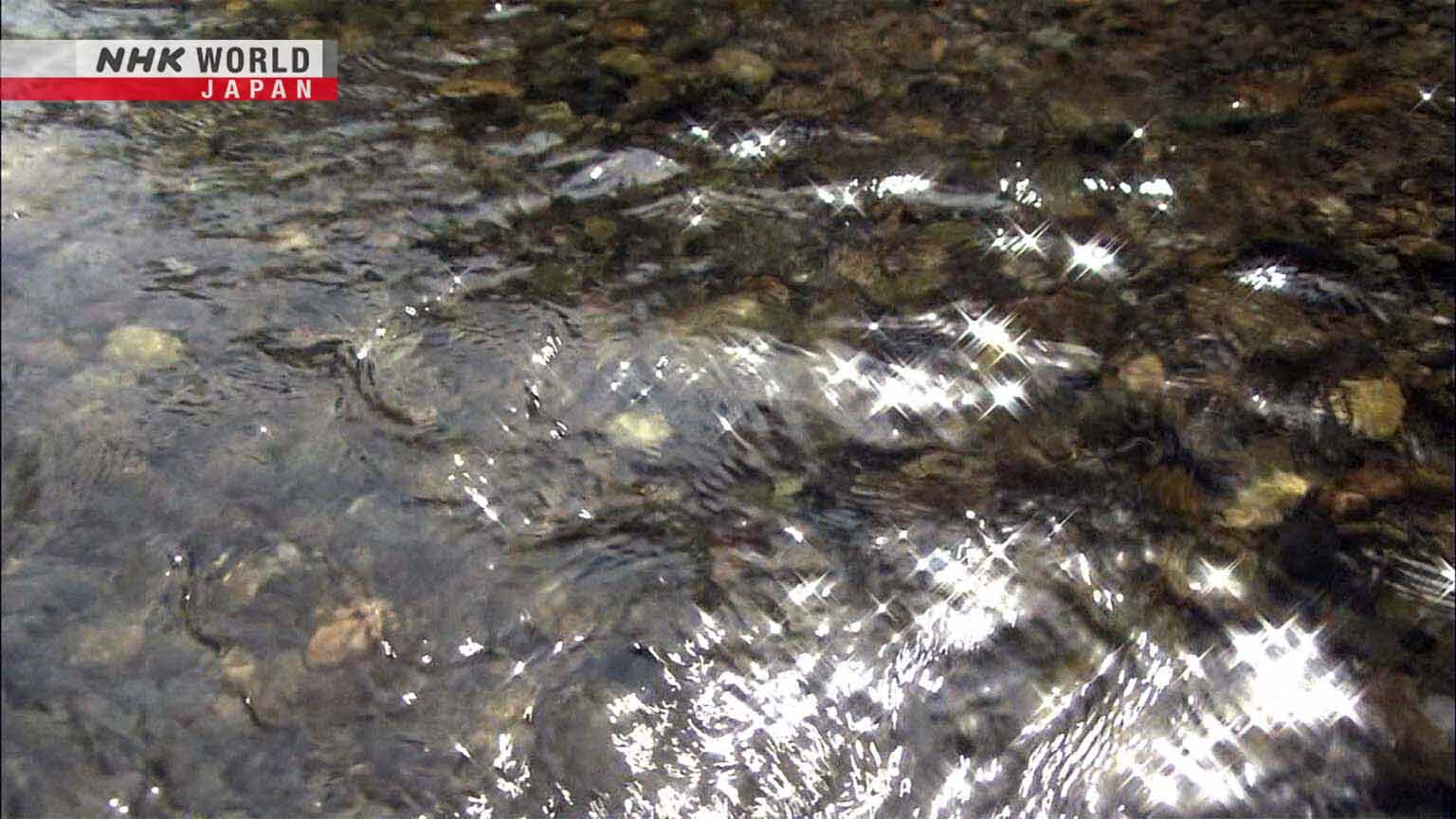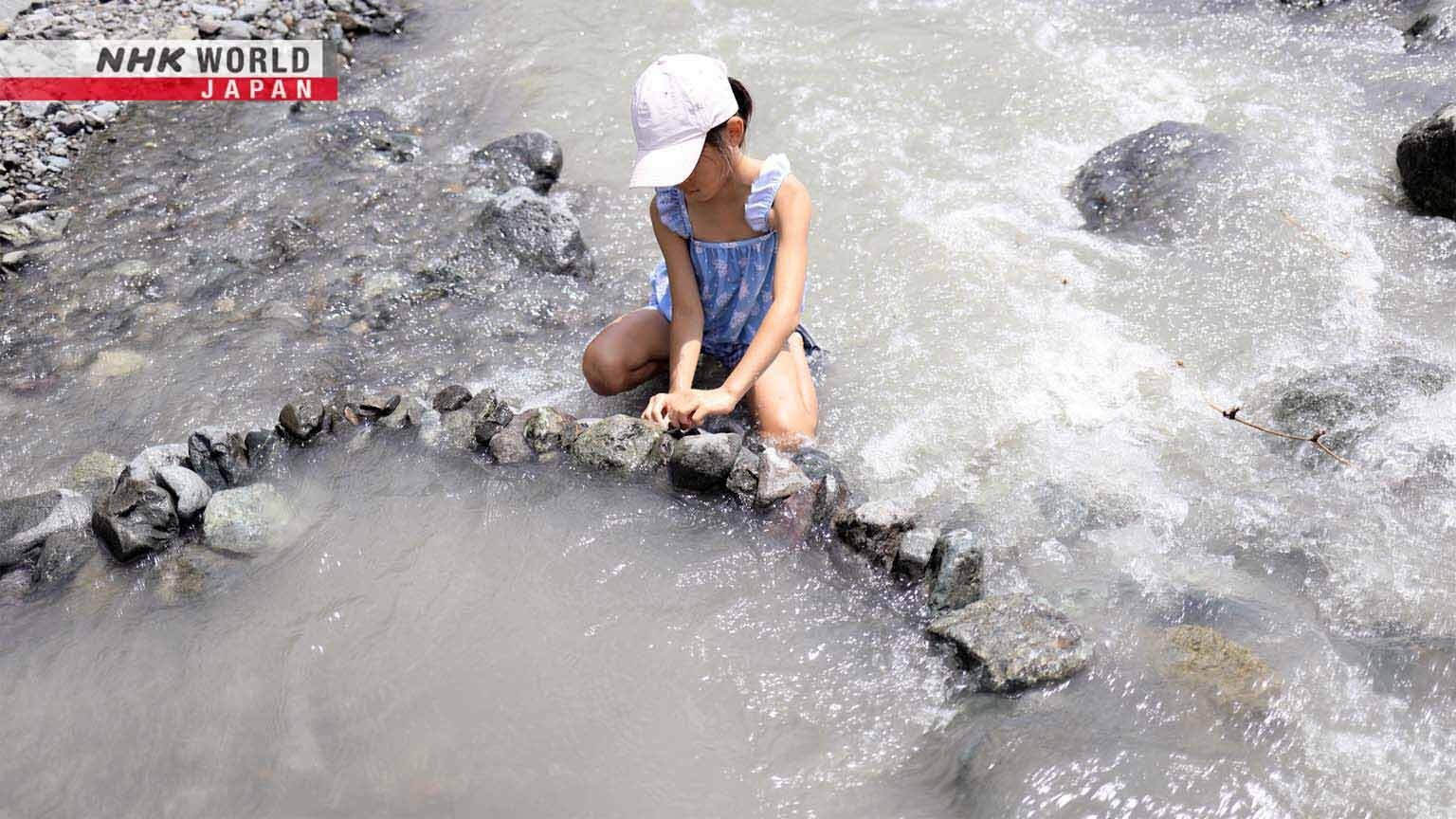River/Stream
This episode focuses on kawa, which means both river and stream. These flowing bodies of water have played a central role in Japanese life and philosophy, as reflected in the Japanese language.




Transcript
"Yukigesho"
"Karakurenai"
The Japanese language is rich in unique expressions that reflect nature and culture.
Magical Japanese.
Today's theme is "kawa," the word for both "river" and "stream."
Abundant mountains and plentiful rain create rivers large and small that flow throughout Japan.
They provide water for drinking and agriculture, as well as for transportation.
Since olden times, rivers and streams have played a central role in Japanese life.
Hello! I'm Peter MacMillan.
Rivers have a mystical appeal for Japanese people.
They appear frequently in waka poetry.
And in philosophy, they serve as metaphors for the transient nature of reality.
In Buddhism, the realms of the living and the dead are separated by the Sanzu River.
Every summer, people float lanterns down rivers to commemorate the dead in the Toro Nagashi festival.
The Chinese character for "kawa" is written like this.
And there's an interesting expression that refers to this particular character.
"kawa no ji"
"Ji" means character.
The phrase literally means "the Chinese character for kawa."
It describes a family asleep together, with a child or children snuggled in between -
which looks just like the character for river.
It's a peaceful sight.
"kawa no ji"
"kawa no ji"
In the days before public works, most people could not have water drawn to their homes.
And so, people went to the river to fetch water and do their laundry.
When doing so, they had to watch out for the fearsome kappa.
Kappa are mythical monsters, lurking in rivers and ponds.
There they wait to grab inattentive passersby and pull them to the bottom.
Naturally, they are fantastic swimmers, but sometimes even the kappa can slip up...
"kappa no kawanagare"
"Nagare" expresses the image of something being carried away.
The entire phrase translates to "a kappa being carried away by a river."
It's used to mean that even an expert can sometimes make mistakes.
"I'm surprised that an experienced person like her could make such a basic blunder."
"It's an example of - kappa no kawanagare - even a master makes mistakes."
"kappa no kawanagare"
"kappa no kawanagare"
In English, we might talk about a stream "murmuring" or a brook "babbling."
In Japanese, this sound is called "seseragi."
I'm sure it's a universal pleasure to sit by a stream and relax to the sounds of running waters.
Here are some onomatopoeia for rivers.
A shallow river goes:
"sarasara"
"sarasara"
One folktale that all Japanese children know is "Momotaro," or "The Peach Boy."
It starts with a giant peach floating down a river, making the sound "donburako donburako donburako."
I would never have imagined that the sound of a floating giant peach would be "donburako."
Some people might want to block or divert a river and use the water for some other purpose, such as farming.
To do so, they can pile up earth and stones in the river and build a weir.
The Japanese word for "weir" is "seki," as in the following expression.
"Sekitomeru"
"Tomeru" means to stop.
"Sekitomeru" means to block the flow or passage of something - for example, blocking a river with a "seki."
The phrase also refers to keeping something in check.
For example, "sekitomeru - stop - the spread of infectious diseases."
"sekitomeru"
"sekitomeru"
"seki o kitta yo ni"
"Kitta yo ni" means "as if breaking."
The entire phrase means "as if the seki broke."
Just like water bursts out with great force from a broken dam,
it is used to express sudden force or energy.
"She must have been holding back while he made excuses."
"Because when he finished speaking, she started yelling - seki o kitta yo ni - as if a dam had burst."
"seki o kitta yo ni"
"seki o kitta yo ni"
Just like rivers, our emotions can get dammed up or gush forth.
Let me give you a famous poem about rivers.
"Like water rushing down the river rapids,
we may be parted by a rock,
but in the end we will be one again."
The poem compares the passionate feelings of love to the flow of a river.
The poet has been separated from his lover, but believes that they will meet again,
just as a stream of water converges after separating around a rock.
You might notice that the poem includes the word "se."
A "se" is the part of a river that is shallow enough to cross on foot.
It appears in sayings like this.
"tatsu se ga nai"
"Tatsu" is "to stand" and "nai" means "do not have."
The phrase originally meant, "having no place to stand in the river."
Now, it's used to describe being in an awkward position or losing face.
"I chose you as captain, but if you make such careless mistakes,"
"I'll be - tatsu se ga nai - left in an awkward position."
"tatsu se ga nai"
"tatsu se ga nai"
"nagare ni sao sasu"
"Nagare" here means the flow of a river.
"Sao" is a pole for rowing a boat and "sasu" means to stick into.
The expression originally meant to row a boat along a river using a pole.
As it's easy to proceed when going with the flow,
this expression was used to describe things progressing swimmingly.
Actually, these days, this saying is used more often with the entirely opposite meaning,
namely, to "go against the flow."
For example:
"I think we're headed in the wrong direction with this project."
"We're doing great! Don't - nagare ni sao sasu - go against the flow - when we're on a roll."
"nagare ni sao sasu"
"nagare ni sao sasu"
Strange, isn't it?
Words, like running waters, shift and change...
Anyway, what did you think of all these Japanese expressions related to rivers?
I hope that you will go with the flow and learn some more.
See you next time. Bye.